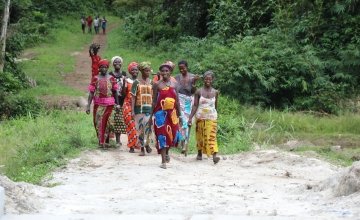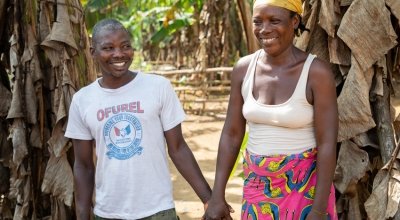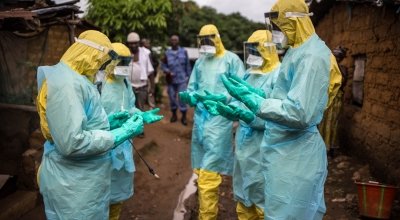
Read our 2023 annual report

Knowledge Hub
Dissolving the myths about Ebola

As the Ebola crisis continues to worsen, the myths surrounding it are adding to the enormity of the problem.
Here, we explore those myths and address the need for people to know the facts.
The top seven Ebola myths we are tackling in west Africa are:
- If you go into a clinic, you’ll be given an injection to speed your death
- Routine blood tests and school vaccinations are a campaign to infect children with Ebola
- Ebola can be cured by home remedies, like a mixture of hot chocolate, coffee, milk, raw onions, and sugar
- Governments have fabricated the ebola scare to deflect attention from scandals or depopulate rebellious provinces
- Health personnel and charity staff are the ones spreading the disease
- Body parts are being harvested in the isolation units
- Ebola isn’t real
Epicentre of crisis
Since the start of September, the number of people diagnosed with ebola in Liberia has skyrocketed.
Liberia is now the epicentre of the crisis in west Africa and infections are currently growing at an exponential rate.
Almost 40 percent of the total number of reported cases has occurred within the past two weeks alone.
The World Health Organisation has warned that the west African outbreak could infect up to 20,000 people and take six to nine months to bring under control.
Misconceptions
According to reports, rampant fear and distrust of health authorities is causing symptomatic patients to refuse to seek treatment.
Those who have already been diagnosed are fleeing isolation wards and spreading the disease. Myth and misinformation are preventing people from following simple safety precautions that could save their lives.
Concern Worldwide is working around the clock in Liberia and Sierra Leone, where the Ebola crisis is at its worst, to ensure that myths are dispelled.
What we are doing
Prevention requires both education and supplies.
The general population, and many healthcare workers, lack accurate information about how the disease is spread and how they can protect themselves.
Additionally, frontline healthcare workers are short of basic supplies like gloves. We have been working hard to deliver on these and other critical fronts.
We’ve been working in Sierra Leone and Liberia for decades.
Now, we’re drawing on our extensive community outreach experience to educate people about how they can keep themselves safe from Ebola.
We’re distributing thousands of leaflets and posters, airing radio messages and training healthcare workers, village leaders, traditional healers and birth attendants. We’re also providing clinics with critical supplies and assistance.
You can help
You can now apply for jobs as part of our Ebola emergency team.





